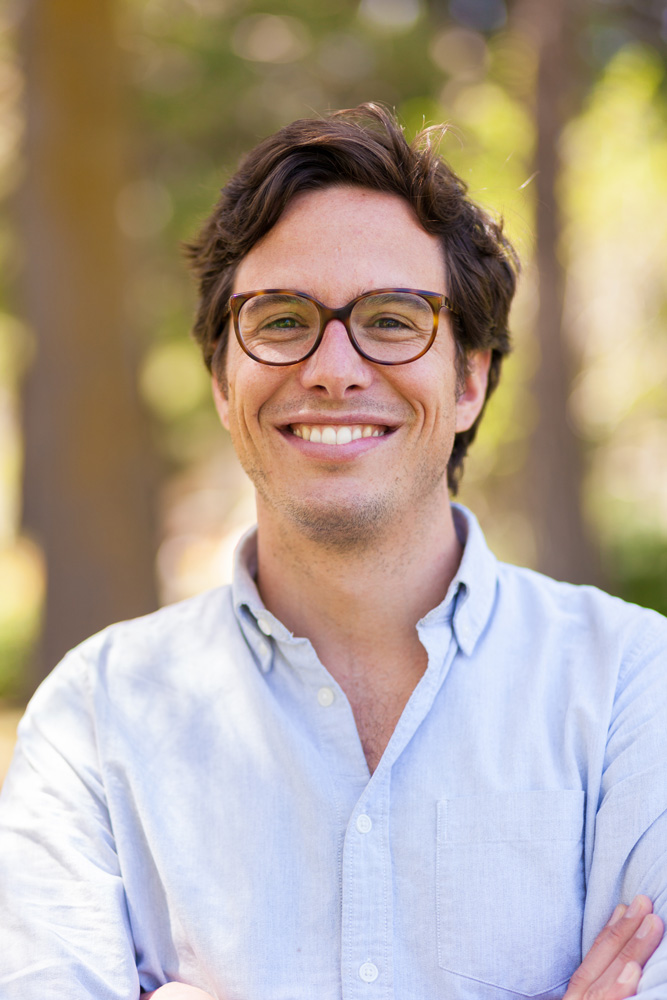
Johannes Fink
“I first got interested in the quantum world in high school, when I read about phenomena like entanglement and action at a distance and experiments in quantum teleportation. I was intrigued by the philosophical aspects—for instance, what quantum theory says about the nature of reality—and I was also interested in the technical details of the research. Now I’m working in a field that combines all those interests.”
Interview
What is your current research?
I’m an applied physicist, working on the design, fabrication, and testing of microchips that contain both electrical and mechanical circuits—what we call resonant circuits. These structures are typically very small, and the electrical circuits are made of superconducting material. We want to cool these devices as close as possible to absolute zero, to the point where there is so little energy left that we’re essentially dealing with a single quantum of microwave or mechanical energy whose properties we can control and manipulate. One of our main goals with these chips is to study entanglement—this is where you have distinct systems whose behavior can only be described collectively, no matter how far apart they are separated in space. Ultimately we would like to entangle the microwave elements with the mechanics and the mechanics with optics, a very challenging goal that requires a lot of different techniques and technologies.
What appeals to you about this research?
I first got interested in the quantum world in high school, when I read about phenomena like entanglement and action at a distance and experiments in quantum teleportation. I was intrigued by the philosophical aspects—for instance, what quantum theory says about the nature of reality—and I was also interested in the technical details of the research. Now I’m working in a field that combines all those interests. A hundred years ago the first quantum theorists had lengthy debates about the validity of quantum mechanics and its relationship to the classical world, and now we can actually go into the lab and study those questions. It’s exciting to do experiments where you can see entanglement and observe quantum effects in larger and larger systems, and do complex engineering to explore and understand this quantum world. I also like the fact that as an experimentalist I’m involved in all the details. I know how to make and design the microchip, how to do the experiment and how to model and interpret the acquired data. So there is a lot of change and variety in what you do, and I think that is very rewarding.
What do you do when you’re not doing physics?
I like backpacking, and I travel a lot—I spent some time in South America after I finished my PhD. I grew up in Austria and went to graduate school in Switzerland so I like activities related to the mountains—hiking, snowboarding, and skiing. Since coming to Southern California, my wife and I have been spending time at the local beaches. We enjoy that, but in general the work is quite intense here, so I don’t have a great deal of time for it.